By: Thomas Cummings, SCA Interpretative Ranger for Umbagog Lake State Park
Exploring New Hampshire’s State Parks is a great way to spend a summer. From lounging on the beach to hiking up mountains, there is bound to be something to do for everyone. With more people going outside and recreating in the parks it is important to keep in mind the impact one has on their surroundings. Here is a list of seven ways you can minimize your impact on natural resources so they can be enjoyed for generations to come.
1. Do your research
Spontaneous outings do have their place, in being grand adventures with no set plan. However, to get the most out of a visit to a state park it helps to have some information prior to getting in your car. For example, by reading up on the New Hampshire State Parks Blog you may learn of a hidden gem at a park that is over looked by most visitors. You could also talk with Park Staff or SCA Interpretative Rangers who are happy to teach about the use of natural resources.
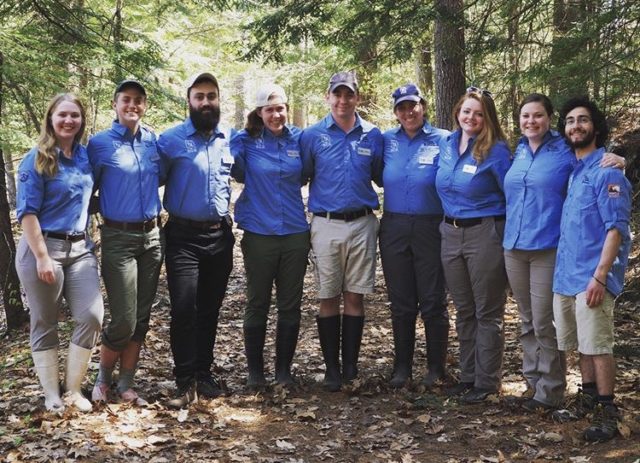
2. Stay on trail
Trails are put in place to give explorers, like yourself, a designated area to focus your impact. Hiking off trail does have an impact, by means of trampling vegetation and disturbing wildlife. Hiking on trail gives wildlife space to stay wild while also protecting delicate vegetation that may have otherwise been stepped on.
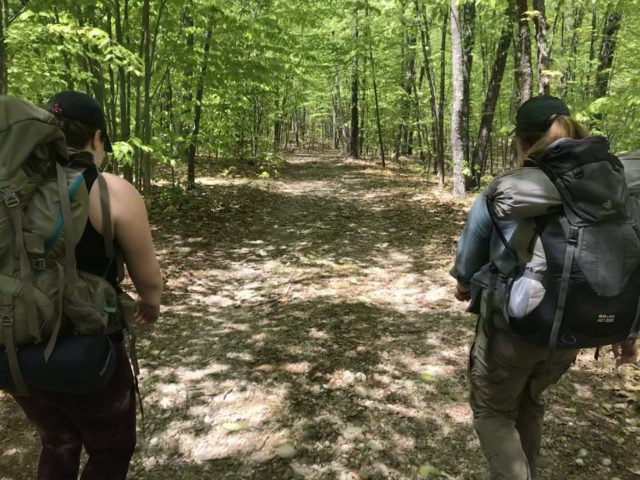
3. Carry in, carry out
New Hampshire State Parks are shared spaces of wilderness that everyone can enjoy. That being said, be sure to bring home anything you brought to the park. For example, if you brought a snack in a wrapper, take your trash with you. By simply throwing it on the ground it can be harmful to wildlife, while also taking away the beauty of the park.
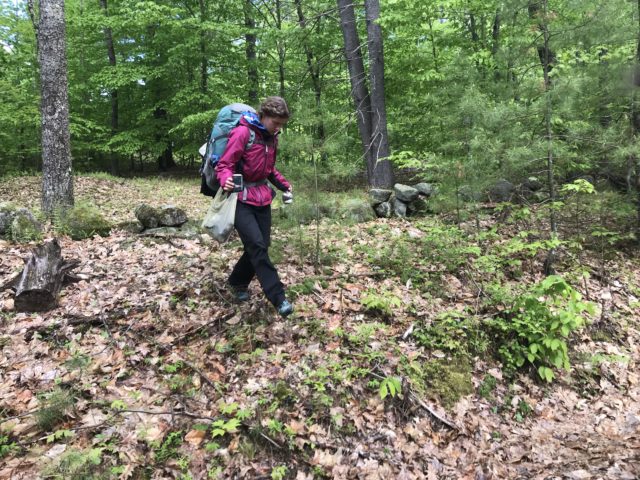
4. Leave what you find
While you venture into different parks you may run across things that spark your curiosity or may leave you in a sense of awe. Be sure to leave that thing where you found it so others can share that same “Wow” moment you were able to have. A great alternative to taking something home is to just take a picture instead.
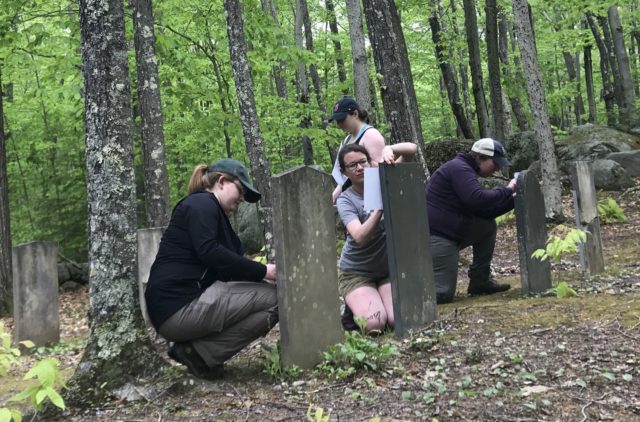
5. Use designated fire rings
Campfires are core part of many peoples experience(s) of camping. However, fires can leave a huge impact on the environment if they are not taken care of properly. By using designated fire rings, put in place by park staff, you can enjoy the flames while having a focused impact. This allows the surrounding environment to be affected as little as possible by your actions.
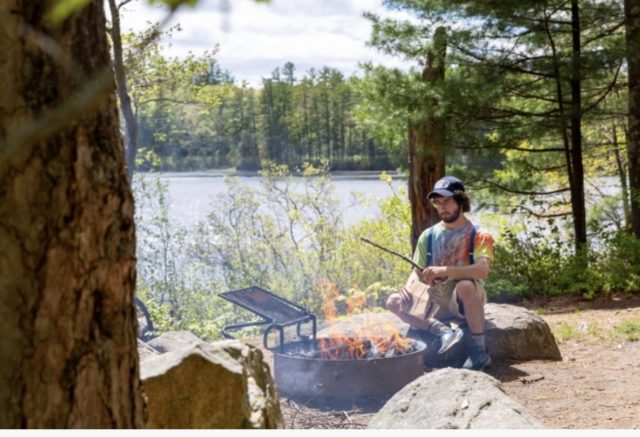
6. Give wildlife space
New Hampshire is home to an assortment of wildlife that people, for the most part, would like to see. As exciting as it may be to see these animals and plants it is important to give them the space they need. Keep in mind the park you’re exploring is their home. So be sure to respectful, because your actions might lead to exciting discoveries.
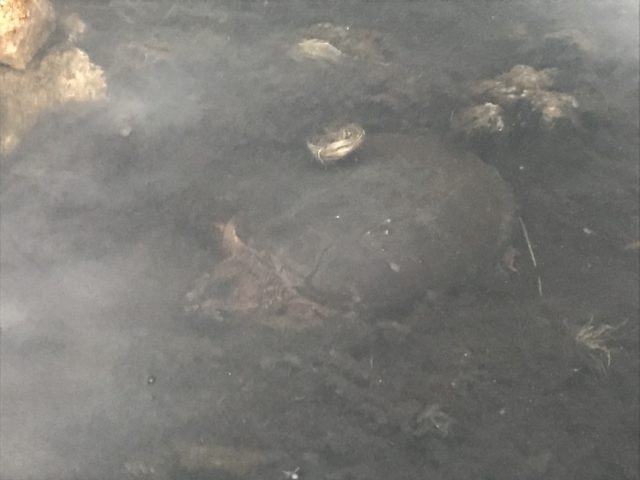
7. Share your experiences
The great outdoors is a place where anyone, and everyone is welcome. We may have different backgrounds, or comfort levels in the outdoors but we can all learn from each other. Simply by talking to a passing hiker, you may leave the trail with more knowledge than when you first started on your hike.
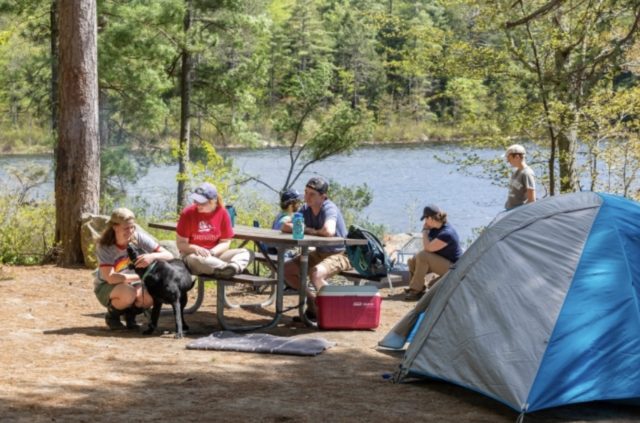
These seven tips are just the tip of the iceberg when it comes to exploring the wilderness responsibly. If you’d like more information about other ways you can recreate responsibly, swing by any number of programs put on by the Student Conservation Association’s Interpretative Rangers this summer!

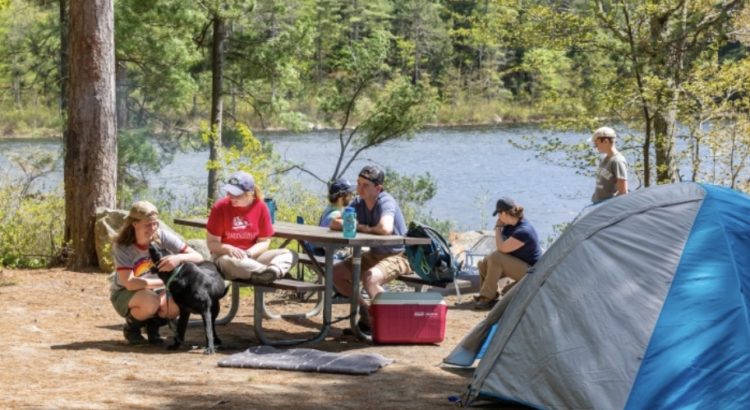
I always enjoy your NH State Park blog. However, your “Leave No Trace” post has one problem spot. #4 Leave What you Find shows people doing gravestone rubbings. This is not regarded as responsible practice any longer. Historic gravestones can be loose and fragile, some even de-laminating. Any human contact, especially applying pressure while trying to transfer the inscription could cause the stone to fall and possibly break. Taking a photo is a much safer alternative and captures a better image.